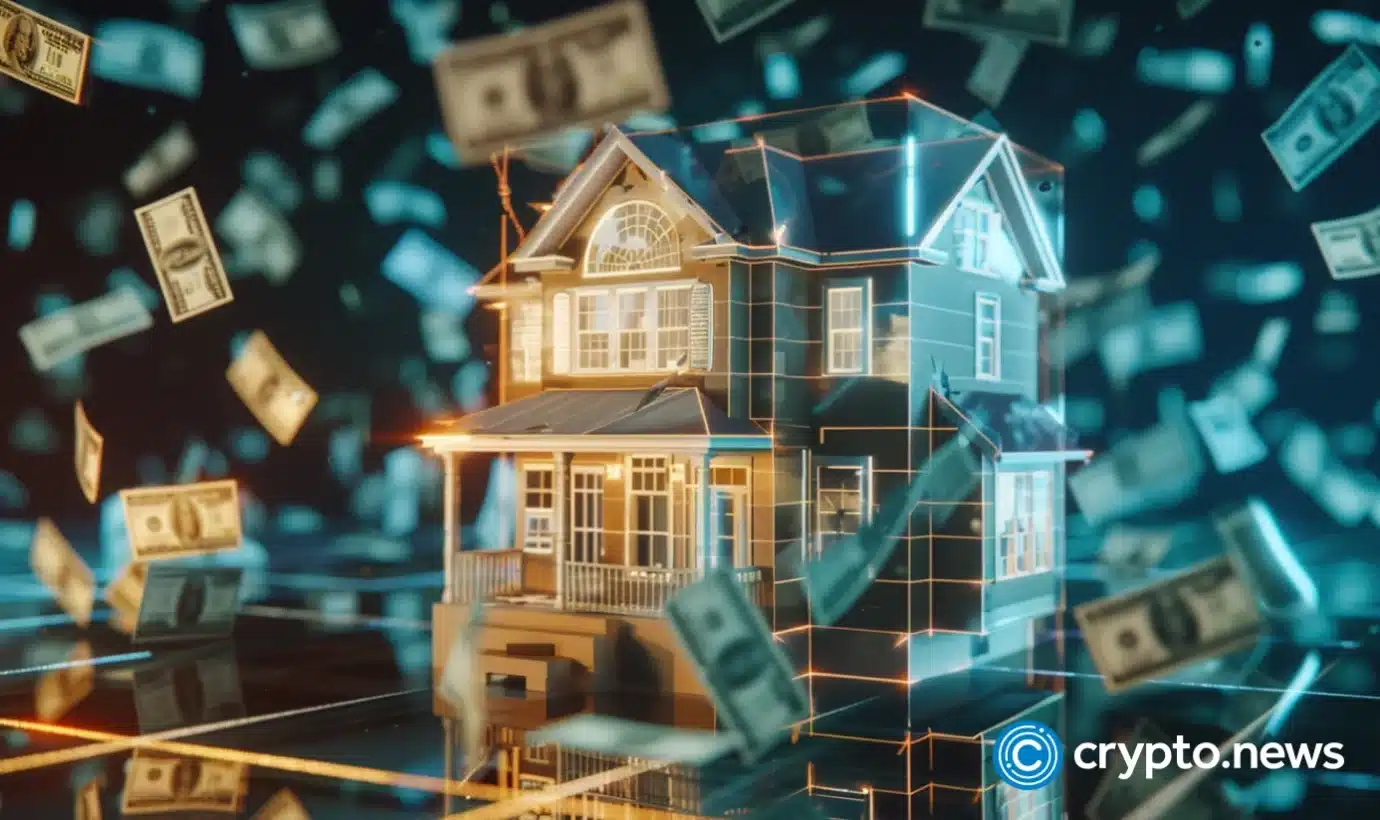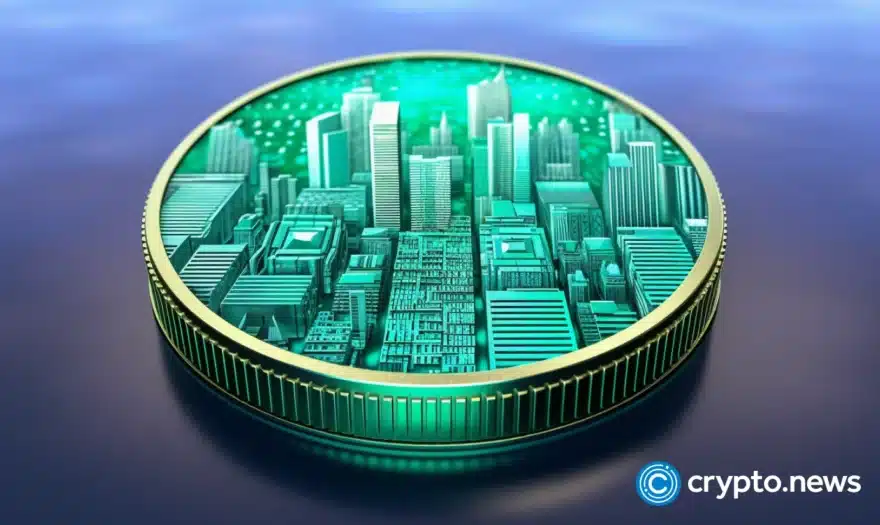Real estate tokenization: What is it, how does it work, and how to invest?

How do you tokenize real estate? Blockchain technology is redefining the possibilities in almost every industry, and real estate hasn’t been left out. In this guide, you will learn about tokenizing real estate assets and how you can invest in tokenized real estate.
Table of Contents
What is real estate tokenization?
The tokenization of real estate is transforming the ownership rights of real estate properties into a digital form by turning them into digital tokens on a blockchain.
What is the purpose of tokenization? For example, if you intend to sell prime real estate property, you’ll need to search for buyers who are ready to spend millions of dollars to buy the property. This reduces your chance of selling the property in time and, at times, even getting your preferred asking price. However, tokenizing the property allows for multiple investors to share ownership of the property through factual ownership.
Real estate tokenization is a process that allows you to represent the ownership of physical real estate as digital tokens. You can convert a property worth $50 million into 500,000 tokens worth $100 each, and you can sell them on secondary exchanges. These tokens are a share or fraction of the underlying property. Each token is programmed with the details that grant ownership to an investor based on their share percentage of tokens.
The real estate market is one of the largest in the world and plays a critical role in global GDP, considering its massive market size. However, the number of real estate investors worldwide is small compared to its market capitalization because the capital needed creates a massive barrier for small investors.
Additionally, the several intermediaries responsible for processing transactions in the industry slow down the process of investing while inflating the cost of property transactions at the same time. Moreover, transparency is quite low and investors often have no way of knowing the real valuation of certain properties. Real estate tokenization solves a bulk of these problems in the market as we’ll see shortly.
How does real estate tokenization work?
The concept of tokenization itself precedes blockchain technology. However, tokenization on blockchain technology pushes the boundaries to tokenizing real-world assets like real estate.
A token can be used to represent any form of asset related to that real estate like a portion of the deed, an equity interest in a legal entity, or ownership of the collateralized debt. Since the tokens are backed by an underlying asset, their value will fluctuate based on the performance of the asset, with ease of transfer facilitated by blockchain technology.
This leads to several benefits.
Benefits of real estate tokenization
Tokenization can cut out the several middlemen that make investing in real estate tedious. For example, if you want to legally transfer ownership in a real estate investment, several parties must come into play to ensure the process is complete. However, tokenization enables you to sell a real estate asset seamlessly, just like you can when trading cryptocurrencies in a marketplace. An asset can be transferred directly between buyers and sellers without the involvement of any other party, enhancing market liquidity.
In the process of real estate tokenization, an asset can be divided into smaller units, allowing for fractional ownership and lowering the barrier of entry for small-scale investors. This means you can easily invest in real estate assets with little or no experience.
Moreover, these tokens can be listed on exchanges that allow for trading 24/7 without geographical restrictions. Rather than searching in different real estate markets, investors just do their search in one centralized marketplace where most tokens are listed. This enables investors to have access to a wide range of investment opportunities across borders with ease. Additionally, property sellers gain access to a large pool potential of buyers.
Real estate tokenization also significantly improves the transparency in the real estate market through the distributed ledgers of blockchain systems – any change or transaction in the system is subjected to a consensus process before approval and distributed to all participants in the network. This means that the public can have a tamper-proof history of the ownership of real estate assets, reducing the time-consuming and costly need for extensive due diligence by investors. Furthermore, tokenization provides a more transparent view of market sentiment.
Smart contract automation in blockchains can also lower transaction costs and reduce third-party risks associated with the real estate market. Instead of relying on intermediaries that charge high fees for facilitating transactions, a smart contract automatically transfers real estate tokens to buyers once they meet the requirements of the seller, hence eliminating the need for lawyers, legal documents, banks, escrow accounts, and brokerage commissions. These smart contracts can also be designed to automate the different processes involved with a real estate asset like rental yield distributions.
While REITs have a similar value proposition, their funds come with high minimum investment and upfront fees which is a barrier for small-scale investors.
Challenges and risks
Overall, we can see that tokenization boosts the efficiency of the real estate market. However, it’s important to critically test any smart contract and its codes to identify bugs or technical flaws before using them for real estate tokenization. The immutability of blockchains can cause such flaws that lead to more problems for market participants.
The general regulations governing the real estate market must also be put into proper consideration when tokenizing assets.
The future of real estate tokenization
Why tokenization is important? Real estate tokenization holds a promising future, poised to transform how individuals invest in real estate. A significant benefit lies in enhanced liquidity; tokens enable seamless buying and selling on digital platforms. This eliminates the reliance on traditional intermediaries such as real estate agents and banks. Moreover, investors can purchase smaller stakes in properties, democratizing access to real estate investment across a broader demographic.
How to get started with real estate tokenization
Tokenized real estate assets track the price of the underlying asset, as owning these tokens gives you direct ownership over the tokenized property. Moreover, some tokens give holders access to vote on the usage of their underlying property and receive payouts from property rentals.
The steps to purchase real estate tokens require similar processes to those of cryptocurrency trading:
- Find an exchange platform that trades the real estate token you want to invest in (Propy, RealT, IHT Real Estate Protocol)
- Create an account with the exchange. You may be asked to verify your identity for KYC/AML compliance
- Fund your account using the currencies supported on the platform
- Purchase the real estate token of your choice
FAQs
What is blockchain-based tokenization in real estate?
Real estate tokenization is transforming the ownership and rights of real estate properties into digital tokens operating on blockchains, opening up new opportunities for investors and property developers looking to raise capital.
Is tokenized real estate a good investment?
Tokenized real estate can be a good investment provided that the property that has been tokenized appreciates in value and/or generates a high and stable rental yield to token holders.
Can anyone buy tokenized real estate?
Tokenized real estate investment platforms typically require you to complete an onboarding process, which may lock out investors from particular regions. Unlike Bitcoin and other cryptocurrencies, which can be accessed and used by anyone, tokenized real estate assets are, therefore, not yet available to everyone in the world.
















